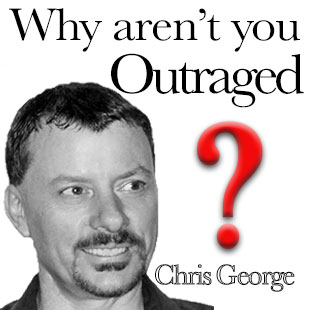
(CHRIS GEORGE / iNFOnews.ca)
July 10, 2018 - 12:00 PM
OPINION
Canada is a rich country. British Columbia is one of the richest provinces. And yet we have one of the highest rates of child poverty in the country.
This is not new information.
Over the past thirty years, in fact, per capita GDP of our province has risen, even as the percentage of children living in poverty has increased. This points to a systemic problem, one that we have failed to address in a constructive manner.
What we have done is play a nasty game of blame the victim, to the point where we now include poverty in our criteria of what neglect is when deciding whether or not to rip families apart. Somehow it makes sense for our government to separate children from their families, at great expense to the taxpayer, for having the great misfortune of being born to poor parents, more likely than not from indigenous families.
Winning the birth lottery has evident advantages. Losing means starting at the back of the pack. Do we really need to punish the losers on top of everything else?
Apparently, we do.
Our economic system ensures that the poor pay for their poverty in a myriad of ways. Economists have gone so far as to dub this systemic problem the "ghetto tax". It costs a lot more to be poor than it does to be comfortable. Entire businesses have grown up to exploit this. Dollar stores, payday loan companies, and discount grocers all exist because of it.
What does it mean to be poor? Who gets to decide? Globally, 4.3 billion people live on less than $5 USD per day. At the same time, global per capita annual income tops out at $10,300 USD.
When the poor in British Columbia are brought up in conversation, the comparison is inevitably made between their income level and the income level of the global poor. But sophistry doesn't fill bellies or put shoes on little feet. Until someone has actually lived it, their opinions are best kept to themselves.
I personally count myself lucky to have received a "winning" ticket in the birth lottery.
I was born here in British Columbia during a time when hard work was rewarded with sufficient financial resources to keep my family off the streets. I managed to avoid the racism meted out to the Indigenous and the new Canadians coming from southeast Asia at the time only because my Metis heritage wasn't evident from my skin colour. And my family wasn't poor, not when compared to our peers.
I never felt poor growing up. I may not have had the latest clothes or toys but I never went to bed hungry. I always had a safe, warm place to sleep. Looking back on my childhood I have much to be thankful for.
I have been able to extend the same good fortune to my children, even though personal income in this country peaked in 1971 when I was eight years old. I feel it is important to recognize my good fortune for what it is: Luck.
We can do better.
There is literally no excuse not to address poverty, at least not any that hold water when examined closely. We know what is needed to solve poverty in our society. We even have a pretty good handle on why doing so would be good for us all. What stands in the way of action is a flawed ideological argument that places the blame for being poor on the victims, the losers of the birth lottery.
"Poor children – more than a million in Canada – have shorter lifespans and lower educational achievements, are more likely to break the law and less likely to participate in civil society and government when they grow up. All of this because their parents are poor." - The Globe and Mail
Healthcare and criminal justice in Canada are cost centres for the government, not profit centres for the shareholders like in the United States. This means that solving these systemic problems is not only the right thing to do from a moral standpoint, it is also fiscally prudent.
In other words, it is time to stop paying to punish the poor for being poor. It simply costs the rest of us too much.
— Chris George believes one measure of a just society is found in how well it balances fiscally conservative economics with social responsibility and environmental soundness in all of its living arrangements.
We welcome your comments and opinions on our stories but play nice. We won't censor or delete comments unless they contain off-topic statements or links, unnecessary vulgarity, false facts, spam or obviously fake profiles. If you have any concerns about what you see in comments, email the editor.
News from © iNFOnews, 2018